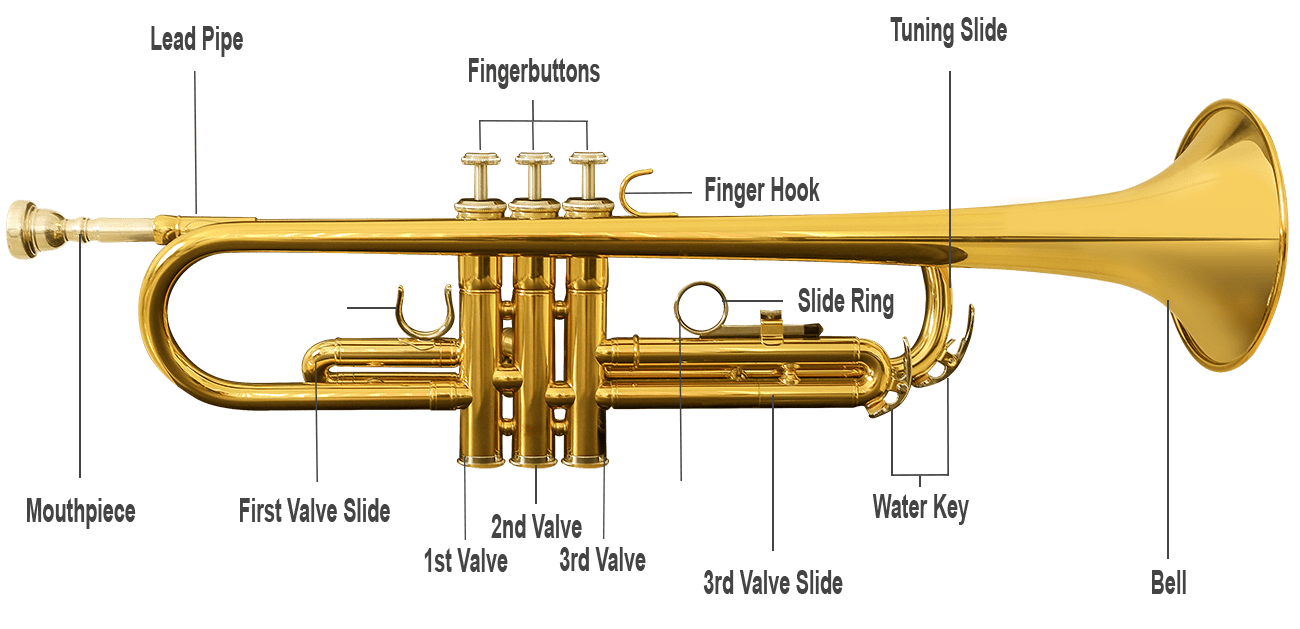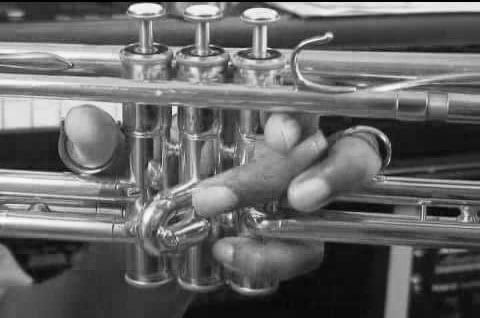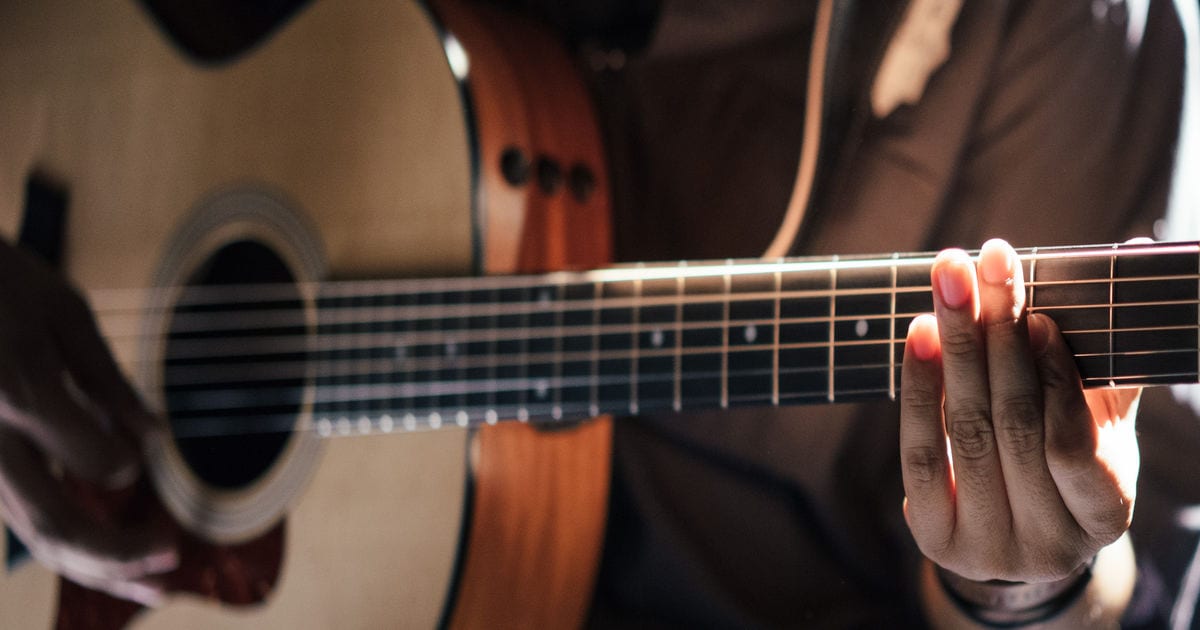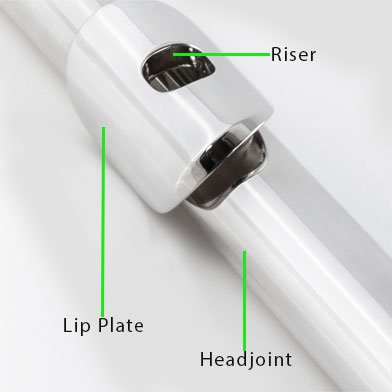1. How to you get a sound out of a trumpet?
A trumpet is a brass instrument which is blown through to get a sound. It uses a mouthpiece which is attached to the trumpet and then the player puts this to their lips and blows. When learning the trumpet, a student will be taught a good embouchure, which is the positioning of the lips, to get the best sound out of the trumpet. There is also a technique that is used to blow a good sound rather than just blasting a sound from the trumpet. As the student learns higher and lower notes they will adjust their lip position on the mouthpiece to get the note they are looking for.
2. Can you play the trumpet while wearing braces on your teeth?
When a child or adult gets braces on their teeth this can pose a problem when playing a woodwind or brass instrument. Often it is just about impossible at first to continue playing but over time it is possible to continue to a certain extent although it is not very comfortable. A decent teacher will adjust the lessons for the student with braces to accommodate this and use the lesson time to teach certain breathing techniques or theory during the lesson.
3. How do you clean a trumpet?
Brass instruments need less care than some musical instruments, but they still need looking after. It is a good idea that children don’t try and fully clean their trumpet as they can be experts at taking things apart and then struggling to get everything back in the correct place! Most brass teachers will tell their students what to do on a day to day basis and some will provide a care information pack for parents to follow too. Children can be shown how to release the excess water/moisture from their trumpets by opening the water keys (spit valves). If a trumpet is played regularly enough the valves that give the different notes won't stick but if a trumpet is left for a while these will get stiff and need lubricating. Likewise, the slides on a trumpet will also cease if the trumpet isn’t regularly played. The teacher will often lubricate the valves for the student. Trumpets will come with valve oil that Is a special oil to keep everything working. The mouthpiece can be cleaned easily, and this is a good practice for parents of younger children to do! It can just have a wash or cleaned thoroughly with a mouthpiece brush.
4. How much is a trumpet to buy?
A decent student trumpet will start at around £150-185. However, it is advisable to not buy cheap as this can be a false economy. A cheap, basic instrument won’t give a student a good start and can hinder progress which will lead to giving up on learning. There are some new plastic instruments available now for younger players that are less expensive and decent enough to get a player going but these are not used for long so don’t be duped into thinking you have got off light on the purchase! Always do some research on instruments and buy the best that you can afford suited to the age and experience of the player. An option is to hire an instrument which can be a small monthly outgoing and take away the stress of buying and possibly buying an instrument that is not quite right. Musical Instrument Hire hire out John Packer, Jupiter and Yamaha trumpets. All three are reliable and offer a cheaper alternative than buying outright. As a player progresses they will need a better-quality trumpet, and these can go into much more money. Many hire schemes will also have an "Option to Purchase" too.
5. Who is a famous trumpet player?
Louis Armstrong is arguably the most well-known trumpet player. He was born in 1901 and influenced music through the century and jazz music.
6. Do trumpets play in an orchestra?
Yes, trumpets are part of the brass section in an orchestra. They often have parts of the main orchestral parts as they are a higher pitched brass instrument compared to trombones, euphoniums and tubas. If the trumpets need to play quieter they use a mute which is a bung that is put temporarily in the bell of the trumpet.
7. How old do you need to be to play the trumpet?
There isn’t a lowest age to start the trumpet as it will depend on the child. Children as young as 5 can start to learn but probably an average ideal starting age would be around 8. As children grow they develop a greater capacity to play better, have a greater understanding of what they are doing and get a decent tone from the trumpet. It really doesn’t matter what age anyone starts to learn an instrument, the most important thing is that they want to learn rather than being told they are going to learn.
8. What are the parts of the trumpet called?

9. What is a mute?
A mute is a specially made piece of aluminium that fits in the end of a trumpet to alter the sound and make a trumpet play quieter. More advanced players will use mutes in orchestral playing or in ensembles to create a different sound. There are different types of mutes for different effects required.

10. How does the sound come out of a trumpet?
A sound on a trumpet is achieved by the player blowing through the trumpet which starts a standing wave vibration in the air column inside the trumpet. The different sounds are made by using the three valves on top of the trumpet and different embouchure (mouth/lip) positions on the mouthpiece.
11. How do the valves work on a trumpet?
The valves work by pressing them down. Notes will be learned one at a time and the different valves, or combination of valves will all be learned over time. With there only being three valves, the range of notes is achieved by playing with a different embouchure (mouth/lip position) for the different pitches. The valves should be smooth and free to press down but they will need lubricating to keep them loose. If valves don’t press down, then they need a good lubrication to ease them back to working again.
12. What is a trumpet made from?
A trumpet is a brass instrument and made from brass which will commonly be 70% copper and 30% zinc. Occasionally, a trumpet will be made from silver or gold. but these are for special occasions. Some mouthpieces are gold plated which are a higher-grade mouthpiece generally.
13. Where does a trumpet originate from?
It is thought that the very first trumpets were just sticks that had been hollowed out by insects over time. Then horns and tusks of animals would have been used, or cane. Around 1400BC the Egyptians had developed an instrument made from bronze or silver which had a bell or wider section at the end. Many instruments all these years ago weren’t used as a musical instrument but as something that could make a sound used in battle or to herd animals. In 1788 Charles Clagget invented a valve mechanism and the first trumpet factory was founded in 1842 by Adophe Sax in Paris. England and America then built their own factories followed by Japan and China. Many student instruments will be made in Japan and China with America still producing quality instruments.
14. How do you oil trumpet valves, and what is valve oil?
To oil trumpet valves you can either unscrew and raise the valves a little or remove the valves all together. If valves are removed, they need to be placed back in the trumpet in the correct order and the correct way around. Children are very good at not being able to do this so need careful guidance. Valve oil is a lubricant often made with mineral oil with added ingredients, or common now are synthetic oils. Both are for instruments only and shouldn’t be tasted or swallowed. There are many brands for sale and all do the same job. Players will often have their favourite brand but much of this can be down to the look of the product or how easy it is to use. Cheaper brands will last the least amount of time due to more product being needed to do the job.
15. How long is a trumpet?
If a trumpet was unwound it would be 4’10” (1.48m)! It’s length in real terms is 19”. There are a few variants, but this is the standard trumpet.
16. What is the difference between a trumpet and a cornet?
A cornet is a shorter trumpet but deeper. They both play the same notes and sound the same although the tone produced is different due to the tubing being either longer or squatter. Young children may begin on a cornet as it is easier to handle being a bit shorter. Most professional players will be proficient with both instruments and use either the trumpet or cornet depending on the style of music they are playing. Cornets are also used in military bands, again due to the style of music quite often.
17. What is the best brand of trumpet?
There isn't an answer to this question as different players will be looking for different things when purchasing a trumpet. It can be down to price, age of player, what the trumpet is being used for, experience of the player etc. It is argued that the Bach Stradivarius is a very good brand and highly regarded amongst professional players whereas the Jupiter, Yamaha or John Packer are great student instruments.
18. What is a pocket trumpet?
This is what it says it is – a pocket trumpet! It produces the same sound as the trumpet as it is the same amount of tubing, but it is wound tighter and more compact. They are only really used for practice when the normal instrument isn’t with the player and there may only be enough room in the suitcase for a pocket trumpet!
19. How do you hold a trumpet?

20. If you play a trumpet, can you play other brass instruments?
Yes, you can, and many brass players will be able to turn their hand to other brass instruments. Those with valves can be interchangeable with players but the trombone has a different skill set as it has a slide and no valves, as does a French Horn which has three valves but it is held and played in a different way to a trumpet.






